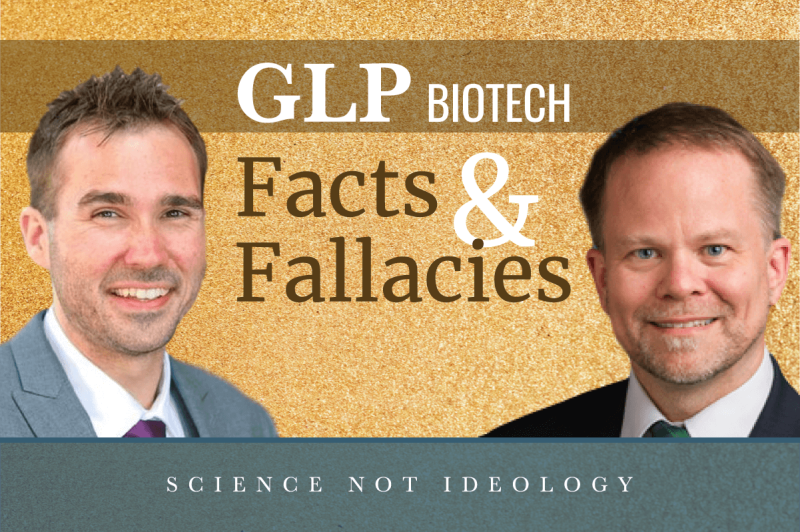Podcast: Play in new window | Download
Subscribe: RSS
Join geneticist Kevin Folta and GLP contributor Cameron English on this episode of Science Facts and Fallacies as they break down these latest news stories:
After more than two decades of research, regulatory review and political wrangling, the Philippines has approved Golden Rice (GR), a GE crop designed to battle vitamin-A deficiency (VAD). The activist group Greenpeace has slammed the country’s leadership, claiming their endorsement of GR will do more harm than good. As usual, their arguments lack a basis in science and expose their disinterest in solving a critical public health problem.
Multiple studies have now shown that certain vaccines may have so-called non-specific effects (NSEs) beyond providing protection against targeted infection diseases. In some instances, the research suggests, these are positive side effects, blunting the transmission of other pathogens. However, there is also evidence that some shots may have potentially harmful off-target impacts. Naturally, the anti-vaccine movement has eagerly endorsed these results. Do such studies stand up to expert scrutiny, and how might they affect our science communication efforts?
In the post-COVID world, communications experts have identified a concerning trend: intensifying political attacks on objectivity. Whether from academics departments beholden to postmodernism or conservatives who ignore any fact that doesn’t comport with their ideology, these epistemic assaults on objective reality undermine our ability to solve problems and promote scientific thinking in society. What can be done to counteract these threats?
Recommended Twitter follows: @erinbiba and @center4inquiry
Kevin M. Folta is a professor in the Horticultural Sciences Department at the University of Florida. Follow Professor Folta on Twitter @kevinfolta
Cameron J. English is the director of bio-sciences at the American Council on Science and Health. Follow ACSH on Twitter @ACSHorg































